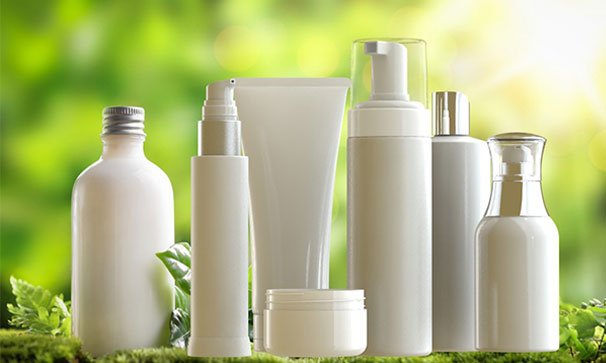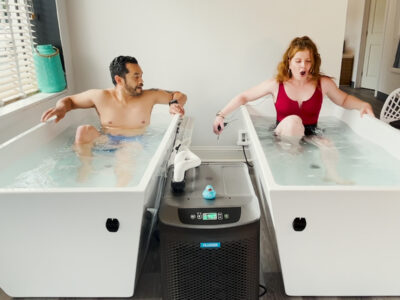When it comes to skincare, one of the most common questions making the rounds isn’t about the latest trends but rather storage. “Should hyaluronic acid be refrigerated?” and “Do serums need to be refrigerated?” might sound like trivial questions, but how and where you store your skincare products can significantly impact their effectiveness and shelf life.
For beauty connoisseurs, especially those invested in Luxury Private Label Skincare, ensuring their products remain potent and fresh is critical. Maintaining these items properly isn’t just about aesthetics; it’s about results. After all, no one wants to spend their hard-earned cash on premium serums only to have them degrade prematurely!
Here’s everything you need to know about skincare product storage—and why the fridge might just be your product’s best friend.
Should Hyaluronic Acid Be Refrigerated?
Hyaluronic acid is a powerhouse ingredient for hydration. It’s the secret behind that plump, dewy skin we all strive for. But how you treat this delicate compound can make or break its effectiveness.
While hyaluronic acid doesn’t technically need refrigeration, storing it in a cool, consistent environment can improve its longevity—especially if you live in a hot or humid climate. Heat and direct sunlight may cause this water-loving molecule to destabilise, potentially reducing its hydrating superpowers. A skincare fridge can be a stylish and functional spot for your hyaluronic acid serum, keeping it at an optimal temperature while adding a refreshing element when applied to your skin.
Pro tip? If your product label indicates terms like “active ingredients” or mentions “preservation,” storing it in the fridge could help retain its potency for longer.
Do Serums Need to Be Refrigerated?
The principles for hyaluronic acid also apply to many other serums. While not all serums must go into the fridge, certain types benefit greatly from lower temperatures. Here’s a quick rundown of which serums can thrive in cooler settings.
Refrigeration-Worthy Serums
- Vitamin C Serums
These are prone to oxidation when exposed to heat, air, or sunlight, which can lead to discolouration and reduced efficacy. Keeping them in the fridge slows down the oxidation process and helps your serum maintain peak performance.
- Eye Serums
For eye creams or serums, refrigerating them isn’t just about preservation—it’s about that soothing, cooling sensation that helps depuff and soothe tired eyes.
- Natural or Organic Serums
Products with minimal preservatives, such as those found in Luxury Private Label Skin Care collections, are more vulnerable to bacterial growth. Refrigeration can act as an extra layer of protection.
Serums You Can Store Elsewhere
Not all serums require refrigeration; certain oil-based and waterless formulas are stable enough to be kept in a cupboard away from light and heat. Always read the label of each product to get clarity on storage.
But, if you’re a skincare fanatic who wants to elevate the experience, even optional refrigeration can make applying these serums feel thrillingly indulgent—almost like a mini spa treatment at home.
Why Proper Storage is Crucial for Luxury Private Label Skin Care
Luxury Private Label Skin Care is all about delivering high-quality, effective formulations crafted with curated ingredients. From premium hyaluronic acid serums to carefully formulated blends rich in botanicals and actives, these products often feature advanced formulations aimed at real results.
Proper storage isn’t just about following a label; it’s about respecting the intricate science behind premium ingredients. Refrigerating select items elongates performance, reduces waste, and keeps your skincare shelf in pristine condition. With proper care, these products can continue delivering on their promise of radiant, glowing skin.
For example, luxury brands often forgo heavy preservatives to maintain a purer experience. The downside? They can spoil more quickly if exposed to fluctuating temperatures. Refrigeration ensures these formulations stay fresh longer.
Key Benefits of Refrigerating Skincare Products
If you’re still on the fence about dedicating fridge space to your serums and other products, consider these glowing benefits of chilled skincare:
- Extended Shelf Life
Protect your active ingredients and prevent spoilage, especially for natural and organic formulations.
- Maximum Efficacy
Keep antioxidants and actives like vitamin C potent by avoiding oxidation or degradation caused by heat.
- Enhanced Sensory Experience
Using cold skincare products can tighten pores, depuff under eyes, and wake up your skin instantly—making your skincare ritual extra indulgent.
- Aesthetic Appeal
Adding a luxe beauty fridge to your vanity or bathroom space doesn’t just look chic; it also shows you’re serious about skincare quality.
Tips for Refrigerating Skincare the Right Way
- Get a Dedicated Skincare Fridge
Unlike your kitchen fridge, a small skincare fridge is set to the ideal temperature—usually between 10–15°C (50–59°F), avoiding temperatures that are too cold and could damage your formulas.
- Avoid Overloading the Fridge
Resist the temptation to throw every skincare product into the fridge. Remember, certain products like waterless balms or oil-based serums are better kept at room temperature.
- Check Labels
Not sure what should go in the fridge? Consult your product’s packaging. The manufacturer usually provides clear guidance.
- Store What You Use Frequently
There’s no sense in refrigerating products you use only once in a while. Focus on high-rotating items like your daily moisturiser, active serums, and eye cream.
Do You Need to Refrigerate Them?
While the added steps of refrigeration might seem unnecessary, particularly if you’ve never done it before, consider the payoff. Every product in your skincare routine carries a unique story—of both its ingredients and how it makes you feel when you use it. Why not go the extra mile to ensure those products are always operating at their best? Especially when it comes to Luxury Private Label Skin Care, proper storage becomes part of the luxury experience.
Final Thoughts
Both hyaluronic acid and serums are the heart and soul of any good skincare regimen, and how you store them can significantly impact their performance. While refrigeration is not always a strict requirement, it does bring a host of benefits, particularly for products containing active ingredients or minimal preservatives.
For beauty enthusiasts who love indulging in Luxury Private Label Skin Care, a skincare fridge isn’t just a practical choice—it’s an elegant one. Plus, who can resist the refreshing sensation of chilled serums gliding across your skin?
Start by selecting key products that will benefit most from refrigeration—like your hyaluronic acid or vitamin C serum—and see the difference it makes in your skincare routine.


















Comments